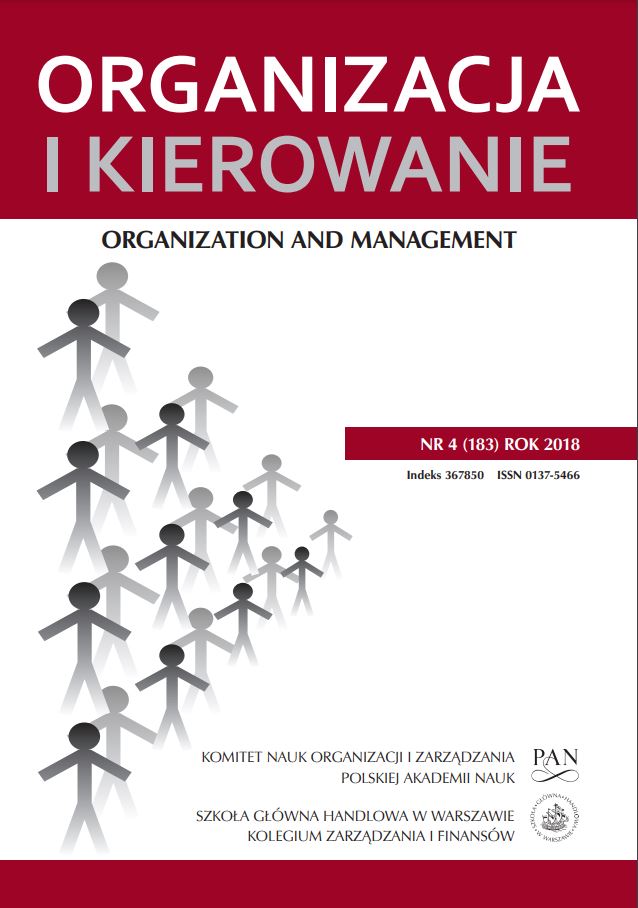DYNAMIC CAPABILITIES AND ROUTINIZATION
Main Article Content
Abstract
The aim of this publication is the recognition of routinization of dynamic capabilities. In the article, the definitions, components and the factors of dynamic capabilities and organizational routines were presented. The scientific literature study was used as the method. The key empiric researches were summarized, and the differences in defining of two main constructs, i.e. dynamic capabilities and organizational routines, were revealed. Apart from that, it was established that the issue of routinization is analyzed on the strategic and operational levels. Moreover, the lack of unambiguity of the connection between these two levels with the degree of routinization of behaviors was shown. On the one hand, the degree of the routinization is perceived as almost identical on both levels, however, on the other hand, the degree of routinization on the strategic level is higher than on the operational level. This study illuminates routinization as an important aspect concerning the nature of dynamic capabilities and identifies the organizational level as a decisive factor that lends partial support to the competing conceptualizations of the effect of routinization on dynamic capabilities. These findings promote a better understanding of dynamic capabilities as knowledge-reconfiguring capabilities and offer a potential path toward reconciling the diverging academic discussion on dynamic capabilities.
Key words: dynamic abilities, routinization, operational abilities
JEL: M1, L12, M3
